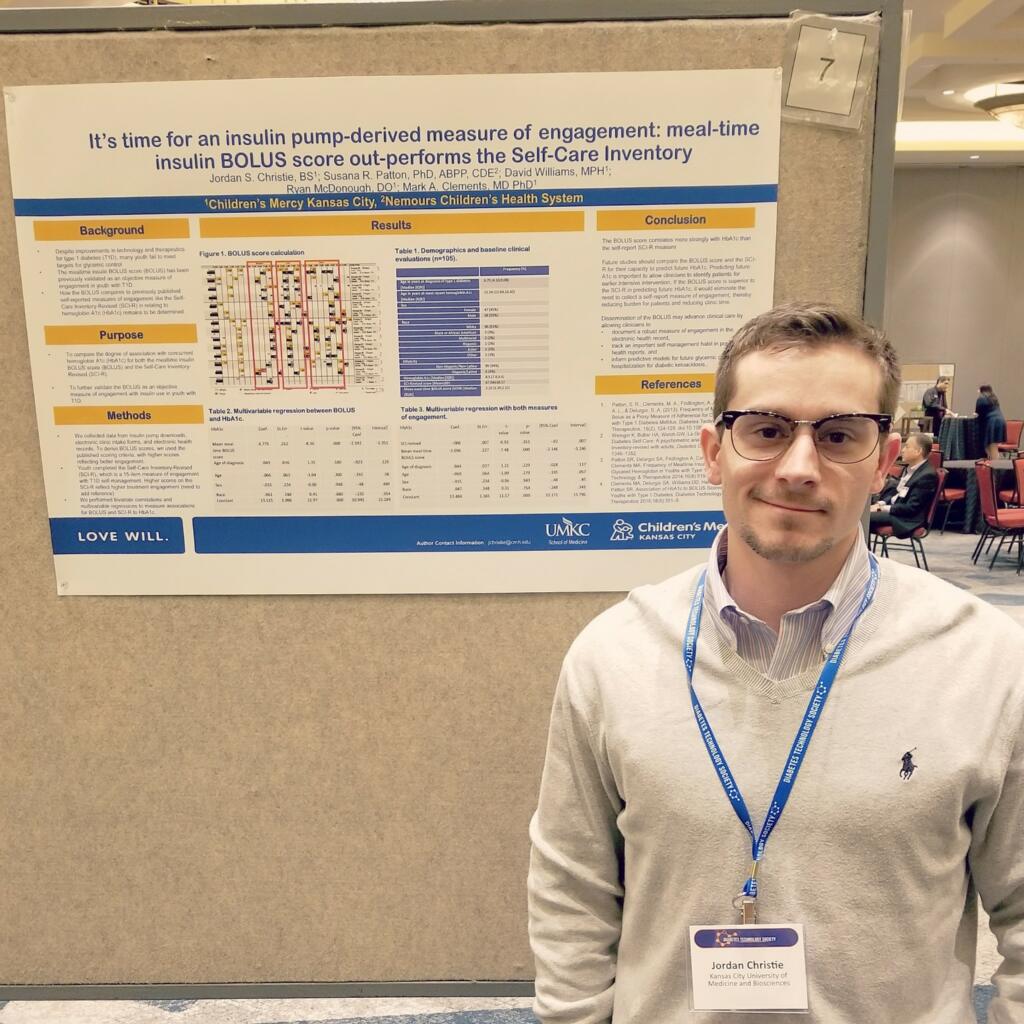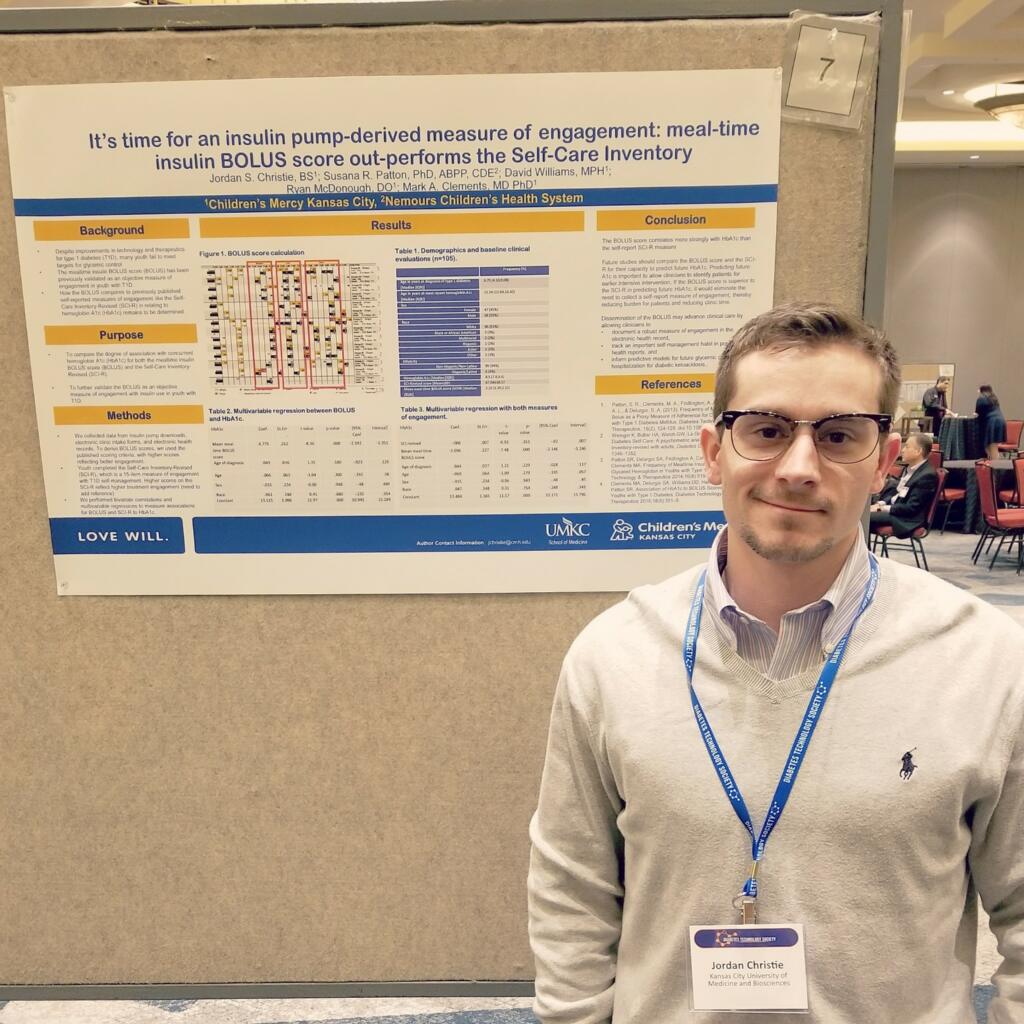Not all research scientists conduct their work wearing white coats in labs testing cells in a petri dish. A new wave of research is being conducted via computer; mining numbers and analytics that can help patients follow doctors’ recommendations to positively impact their health.
KCU class of 2019 College of Biosciences graduate Jordan Christie recently won a Bronze Award for his work presented at the Annual Meeting of the Diabetes Technology Society for a study using data from pediatric insulin pumps. The project was a result of a research partnership between KCU and Children's Mercy Kansas City. Christie’s research was a collaborative effort with his mentor, Mark Clements, MD, PhD.
“For pediatric patients it’s really important to understand if they are doing what they are supposed to be doing in terms of when they are eating and when they take their insulin,” Christie said. “Self-reporting is not super reliable, especially with kids. But we can take numbers from the pump itself, and create a score that can be calculated and associate it with hemoglobin A1C.”
Christie notes the human behavior aspect in diabetes research can make all the difference in the health of a young patient.
“You can use data like this and the circumstances kids find themselves in to help guide them and identify patterns. The goal is to see what the common behavior is, what triggers lead to increasing blood sugar, and help them manage diabetes more effectively.”
Christie is part of a new generation of researchers who integrate medicine with computer science.
“That’s the way science is going,” he said. “I personally see so much value in it. This summer I started teaching myself SQL and Python coding programs, so that I can use statistics to look at large data.”
He plans to earn a PhD in psychology, and hopes to continue his research, so he can apply it to future clients.
“Kids who have been diagnosed with mental disorders and are trying to change behavior patterns may benefit from this type of research,” he said. “Creating patterns of healthy behaviors will be much better than waiting until they are older when those patterns are more difficult to change.”
As the field of data science and biostatistics continues to grow, KCU is offering more courses in bioinformatics to meet student interests and needs. Robert White, PhD, dean of the College of Biosciences, sees this as crucial to student success.
“KCU is proud to have played a role in Jordan’s education,” said White. “Bioinformatics is opening a whole new world in medicine and behavioral health. We look forward to watching him apply what he is learning to improve the lives of patients.”
KCU graduate wins award for work in medical informatics
Dec 16, 2019
Share this:

Share this:
Category(s):
_20240923143809_0.png?w=140&h=140)


(0) Comments